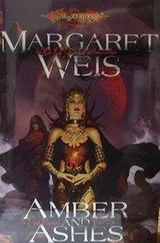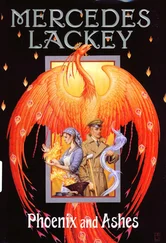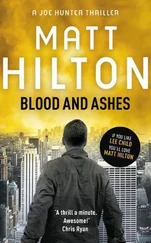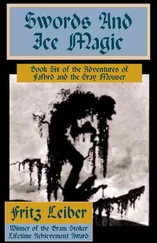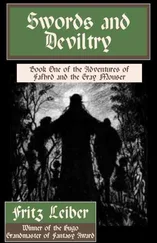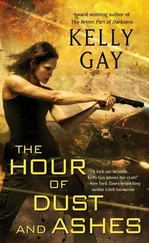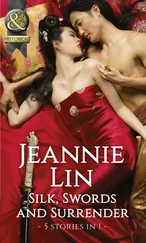J. Clements - Spartacus - Swords and Ashes
Здесь есть возможность читать онлайн «J. Clements - Spartacus - Swords and Ashes» весь текст электронной книги совершенно бесплатно (целиком полную версию без сокращений). В некоторых случаях можно слушать аудио, скачать через торрент в формате fb2 и присутствует краткое содержание. Жанр: Исторические приключения, на английском языке. Описание произведения, (предисловие) а так же отзывы посетителей доступны на портале библиотеки ЛибКат.
- Название:Spartacus: Swords and Ashes
- Автор:
- Жанр:
- Год:неизвестен
- ISBN:нет данных
- Рейтинг книги:5 / 5. Голосов: 1
-
Избранное:Добавить в избранное
- Отзывы:
-
Ваша оценка:
- 100
- 1
- 2
- 3
- 4
- 5
Spartacus: Swords and Ashes: краткое содержание, описание и аннотация
Предлагаем к чтению аннотацию, описание, краткое содержание или предисловие (зависит от того, что написал сам автор книги «Spartacus: Swords and Ashes»). Если вы не нашли необходимую информацию о книге — напишите в комментариях, мы постараемся отыскать её.
Spartacus: Swords and Ashes — читать онлайн бесплатно полную книгу (весь текст) целиком
Ниже представлен текст книги, разбитый по страницам. Система сохранения места последней прочитанной страницы, позволяет с удобством читать онлайн бесплатно книгу «Spartacus: Swords and Ashes», без необходимости каждый раз заново искать на чём Вы остановились. Поставьте закладку, и сможете в любой момент перейти на страницу, на которой закончили чтение.
Интервал:
Закладка:
There were flashes of other memories. Of places and times that were far removed.
Sura giggled and splashed water at him, knee deep in the rushes at the bank of the River Istros, in spring.
Their mouths met, their lips entwined, their bodies naked in a warm summer field.
She glowed with pride, as he handed her father the casket containing her bride-price. It had been autumn.
And Sura was at his side in the snow. That was not right. He remembered this battle. He had fought in this battle for real, when he was a younger man. His wife had not been there. He tried to tell the dream that his wife should not be there, but his mouth was too slow to respond.
The dream-Sura danced through the battle in glee, laughing as he fought his way toward her. She ducked swords and spears, and entwined herself around tree trunks, barely clothed.
“Return to me, my husband!” she cried, her arms outstretched as if to embrace him. “Kill the Getae and return, so that we may make more Thracians!” She laughed, musically, as the first arrows whisked past her head.
Even with time slowed, the arrows darted through the forest as swift as wasps, in twos and threes, and then in dozens, their passage marked by low, threatening thrums as their fletchings buzzed in the cold forest air.
He looked back at the hilltop, saw the sorceress, her arms exulting in command before a triple line of archers, preparing for a second salvo. One side of her face seemed decorated with tattoos in swirls and spikes. She raised her arm, her sleeve falling away, revealing similar pigments there. And then her arm dropped in a decisive movement, unleashing a humming, whistling wall of death.
The Greeks had no time for bows and arrows. Archers hunted birds and game-not men. No real man brought a bow to war, and so Greek design did not defend against such attacks. Greek-made armor was limited, and designed to thwart strikes from a phalanx of men with spears and swords directly ahead. It was not fashioned to protect the extremities and flanks from cowardly darts from a distance.
As the arrows streamed into the forest, they caught the Thracians unprepared. They broke comically on helmets or caught in crests; they thudded into trees and caromed from shields. But the arrows kept coming, darkening the sky in a swarm, hitting home with the sheer law of averages, plunging into eye sockets, cracks in armor; lodging in upper arms and lower ankles.
He felt the sting of an arrow in his heel, and laughed at it-wounded like Achilles.
For a moment, he felt unfamiliar sunlight dapple on his eyelids, and rocked as if on a moving cart. He heard the clop of horse’s hooves on a road and stirred, briefly, in realization. A voice, indistinct and impotent, reminded him that this forest battle had happened long ago .
He need not fear. He would not die.
This was a memory! This was a dream! This was not really happening. He willed himself to wake up, but still fought on, trapped in his invisible cage. Because Sura had not been there when this battle took place, and some part of his dream-self could not let her go unprotected, not even in sleep.
Sura stood, oblivious, in the forest, picking an out-of-season fruit from a dead tree. She held it up toward him, her hand bearing an apple crawling with maggots, as another volley of arrows hummed into the forest.
He shouted at her to get down, to drop to the forest floor, but instead she held out her arms toward the oncoming swarm. He saw her pierced in a hundred places, bloodied in a forest of fletchings as she screamed and called out his name-
“ Spartacus! ” Varro’s voice pierced his dream.
“I am not…” he began, groggy. Autumn sunlight scattered through trees that moved overhead. He lay on wood… on a cart, on a moving cart, in chains. The other slaves stared at him in some irritation.
“You dreamed,” Varro said. “Loudly, of terrible things.”
Spartacus shook his head and wiped his eyes.
“I dreamed,” he said, “I was free.”
There was little to say. The cart rumbled along the road, its horses steadily dragging it up the gentle undulations of the Appian Way, south toward Neapolis. In its rear were stacked crates of garum-the fish sauce no Roman kitchen could do without-and a huddle of human cargo.
There was little to see. Fields, forests and hills. But no slave farmer cared to greet a passing cart, and no lurkers watched from the woods.
There was little to do. Spartacus sat, silent, lost in thought. The giant Barca’s eyes were closed, his eyelids twitching, dreaming of Carthaginian glories. Cycnus, the hairy Galatian, lolled, not asleep but not awake, rolling with the shaking of the cart. Bebryx, of the close-knotted hair and jet-black skin, glared out at the forest. When their cart rumbled past travelers on the road, he stared at them defiantly, as if inviting attack. Varro wore his own chains heavily, unused to manacles but unable to protest to the freeman-a voluntary gladiator was still a voluntary slave, and lacked the freeman’s right to better treatment.
Something smelled.
Spartacus sniffed tentatively at the air.
“Perhaps,” Varro said, “one of the garum kegs has split?”
Nobody answered him, unless by answer one could mean the endless rambling of their traveling companion, an emaciated old man in rags, his head covered in sores, his arms perilously thin.
“Are you him?” he asked the air. “Are you the one?”
The gladiators did their best to ignore him, as they had done ever since Capua.
“I had a son,” he continued. “I think. I had a son. I never saw him. When I was strong, I was taken for breeding. I never saw her face. I never saw her again. But if my seed was true, then she was the mother of my child.”
Suddenly, the wasted, bony hand clutched at Spartacus’s arm. The milky eyes fixed him with unexpected clarity.
“Do not get old,” the man said. “Do not get old.”
“I am a gladiator,” Spartacus replied. “A state I am not likely to meet.”
There was the unmistakeable sound of evacuating bowels.
“By the gods,” Varro said, wincing. “It is not the fish sauce. To be sure, it is not the fish sauce.”
The old man seemed unaware that he was sitting in his own filth.
“The Gracchi will save us,” the old man said. “The brothers Gracchi. Free corn for the masses. Free land for those willing to work. Free games!” He cackled with excitement. “No work! No need to work! Free corn! Free games!”
“Who are the Gracchi?” Spartacus asked.
“Demagogues, long dead,” Varro said. “Only after casting spell of promise.”
“How long dead?” Spartacus asked.
“He would have been a child,” Varro replied, gesturing with his manacled hand at the babbling old man.
“Free games!” the old man declared. “Gladiators and beasts, men fighting men. Criminals thrown to the… to the…” He looked around him, stopped talking and stared at the forest.
The cart came to a gentle halt, the low rumble and clank of its wheels giving way to birdsong and quiet. Their cart stood on the left-hand side of the forest avenue, trees all around, and some branches already entwined overhead. The first errant leaves of autumn made a bid for freedom, whirling downward like falling feathers. A gust of wind shook the branches above them, and caused another dusting of dead leaves to shake free.
They heard the drover clambering down from the front and walking slowly around to the back. He pulled open the rear gate, his nose wrinkling at the stench.
“Old man,” he said. “This is your destination.”
Spartacus peered into the forest, seeing nothing but the trees.
“I have arrived?” the man mumbled. “I have arrived.”
Читать дальшеИнтервал:
Закладка:
Похожие книги на «Spartacus: Swords and Ashes»
Представляем Вашему вниманию похожие книги на «Spartacus: Swords and Ashes» списком для выбора. Мы отобрали схожую по названию и смыслу литературу в надежде предоставить читателям больше вариантов отыскать новые, интересные, ещё непрочитанные произведения.
Обсуждение, отзывы о книге «Spartacus: Swords and Ashes» и просто собственные мнения читателей. Оставьте ваши комментарии, напишите, что Вы думаете о произведении, его смысле или главных героях. Укажите что конкретно понравилось, а что нет, и почему Вы так считаете.

